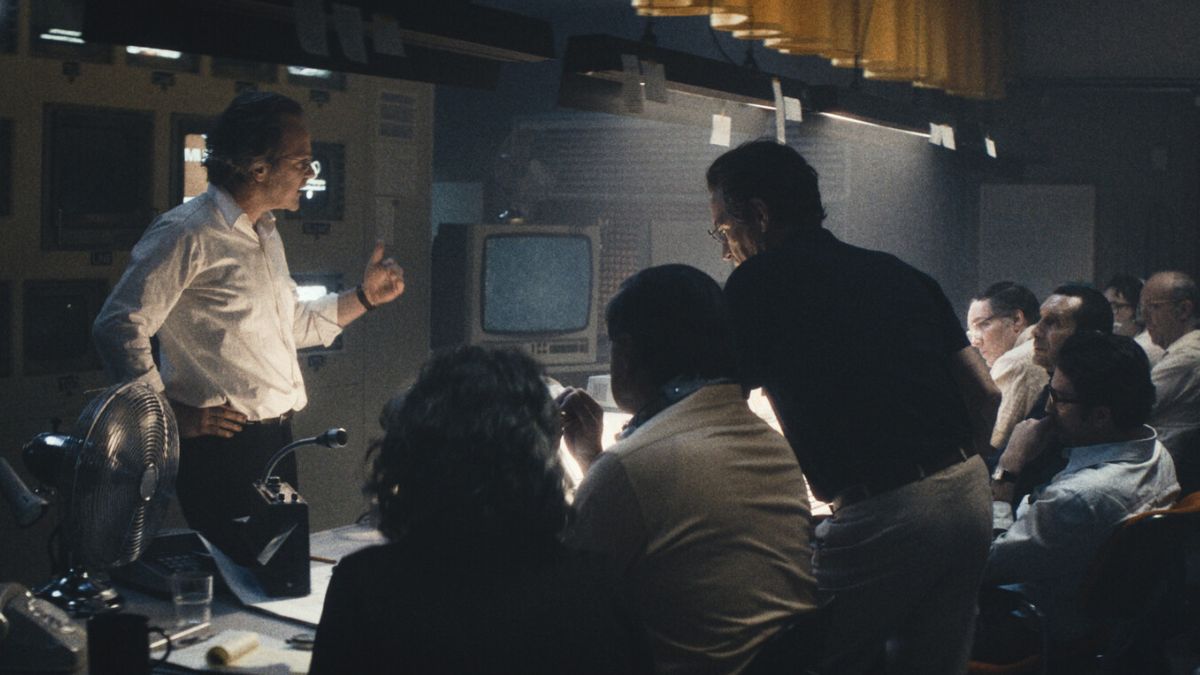'September 5' review: The best journalism film since 'Spotlight' is an effective companion piece to Spielberg's 'Munich'

Being a journalist working in 2025 surrounded by superfast technology that delivers key data at our fingertips, I often reflect on how our predecessors in the media industry operated in the pre-Internet days — how they struggled with analogue equipment or limited resources — how they met those tight deadlines — and how some of today's journalists still get their facts wrong despite all the necessary facilities available at their disposal.
So how pertinent is a 90-minute film about the American Broadcasting Corporation's (ABC) momentous live coverage of the 1972 Munich massacre? Very, I'd say. The chilling massacre and its aftermath, Mossad's relentless hunt for the perpetrators, was dramatised in Steven Spielberg's excellent Munich (2005), and before that, in the television film, Sword of Gideon (Spielberg borrowed the opening sequence).
Streaming on Prime Video, September 5, directed by Tim Fehlbaum, doesn't share the concerns of these two films. It's not a film expected to make a political statement about the Israel-Palestine conflict. The idea is to show, simply, how never-wracking it was for the people working behind the scenes of ABC Sports to relay to the estimated 900 million people watching across the globe, the haunting visuals of the attack orchestrated by the terrorist organisation Black September.
The entire film is confined mostly to the underlit, bland-looking (for a reason) newsroom. We get the sense that the film has been deliberately made to look unglamorous and uncinematic — to focus on its main objective: showing these media personnel racing against time to get visuals that, hopefully, nobody else is getting; to not slack when an unprecedented event is unfolding at a distance. I couldn't help thinking of the claustrophobic confines of a submarine.
It reminds us that this was a time when they shot on film reels. September 5 makes an effort to show how complicated and anxiety-inducing it was to strap film canisters to the body of a camera guy, who has to pretend he is a visiting athlete to bypass suspicious eyes. Interestingly, during some of its tensest moments, it appears to draw influence from Spielberg's film — the handheld camera, the muted colours, the use of real broadcast footage... But it's mostly not trying to be as cinematic as the former.
Peter Saarsgaard is aptly cast as ABC Sports President Roone Arledge, to whom the control room head, Geoffrey Mason (John Magaro of "Past Lives"), and operations head Marvin Bader (Ben Chaplin), report. Mason, sitting behind multiple screens to monitor footage from different vantage points, evokes the image of an opera conductor playing with the listener's emotions, or a filmmaker giving instructions for zooming, panning and other camera directions via radio. The latter description would be more apt, I think, given how journalists are also responsible for creating a certain "narrative".
September 5 also gets one to ponder the irresistible draw of morbid events on people — and how it's impossible to ignore them as they affect the entire world; how it makes us question the nature of existence itself — and that news personnel are simply catering to their needs. But it also reminds us of the importance of doing this profession responsibly — that ethics are paramount, because, in both journalism and cinema, you're playing with other people's emotions. And the importance of using the right words, of course.
In Munich, Spielberg showed newsreel footage of reporter Jim McKay delivering terrible news with the following lines:
"When I was a kid my father used to say 'Our greatest hopes and our worst fears are seldom realized. Our worst fears have been realized tonight. They have now said there were 11 hostages; two were killed in their rooms this morn -- yesterday morning, nine were killed at the airport tonight. They're all gone."
September 5, nominated for Best Original Screenplay at the last Oscars, recreates the high anxiety behind-the-scenes decisions that led to McKay eventually delivering those lines. A lot happens in those scenes, and it's where the film makes its more pertinent point. McKay was reportedly on a 14-hour shift, on his scheduled off day, without a break, at the time. Extraordinary gumption, that.
Film: September 5
Director: Tim Fehlbaum
Cast: Peter Sarsgaard, John Magaro, Ben Chaplin, Leonie Benesch
Rating: 4/5
Movies Review